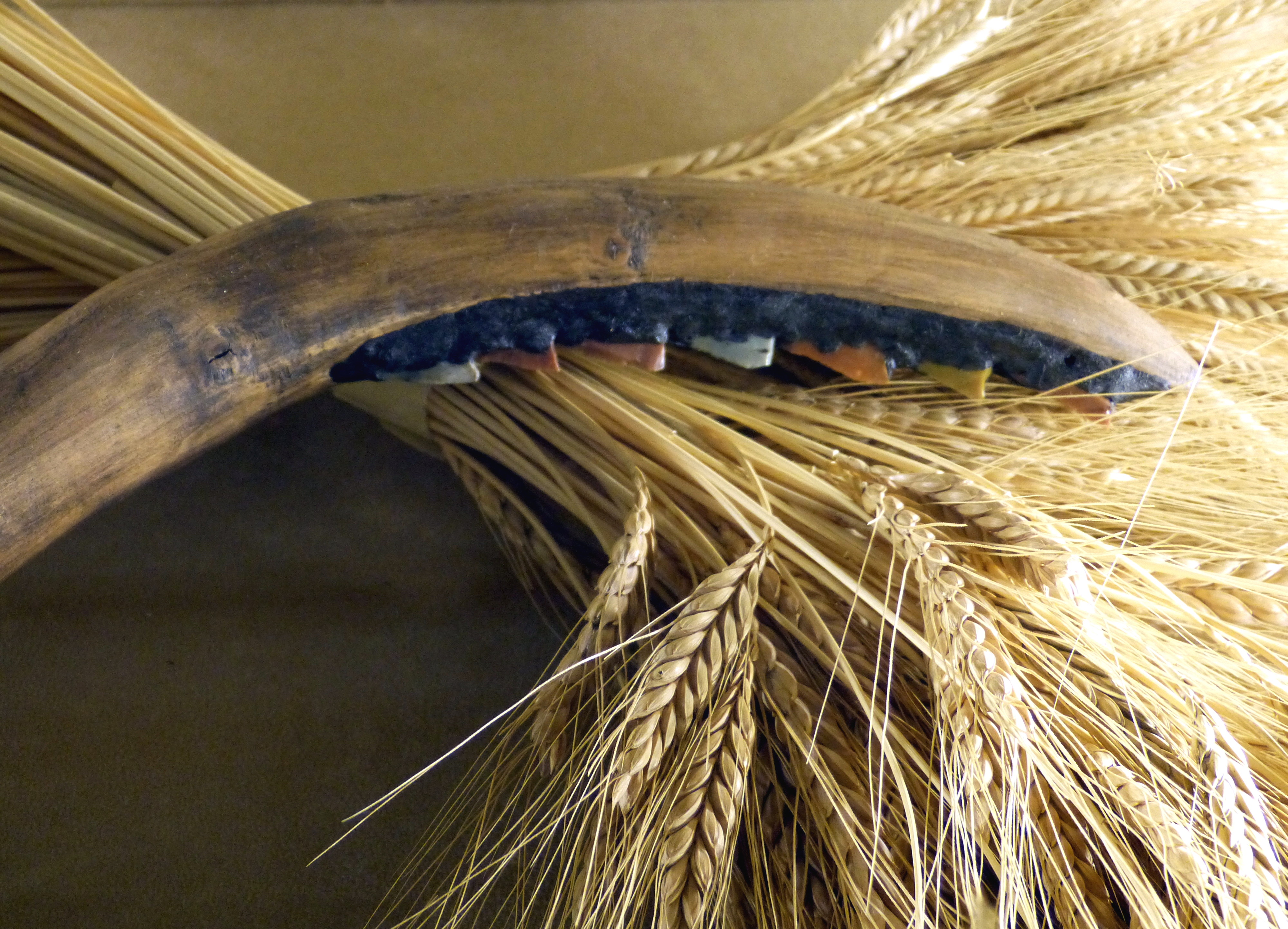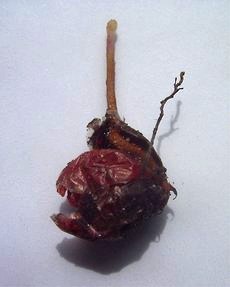|
Johannes Groenland
Johannes Groenland (also spelled Grönland and called "Jean Groenland," 1824–1891) was a German botanist, horticulturist, and microscopist. Early life He was born on 8 April 1824 in Altona, a borough of Hamburg that was part of the Duchy of Holstein at that time. He was the son of Johann Friedrich Grönland, a German organist and music teacher.Magnus, Paul. (1892)Nachruf bituary in German ''Verhandlungen des Botanischen Vereins für die Provinz Brandenburg, 33'', 49-51. Retrieved 14 September 2012 froBiodiversity Heritage Library Career Early career, First Schleswig War Groenland was trained in pharmacology in his youth and served as a pharmacist in Altona, Hamburg, and Jena in his early 20s. In 1849, he joined the Schleswig-Holstein army to fight in the First Schleswig War. Life in Paris After the war, Groenland moved to Paris to work as an assistant to Louis de Vilmorin, a French biologist and horticulturist who was also a member of the family firm Vilmorin-Andrieux.Stafl ... [...More Info...] [...Related Items...] OR: [Wikipedia] [Google] [Baidu] |
Altona, Hamburg
Altona (), also called Hamburg-Altona, is the westernmost Boroughs and quarters of Hamburg#Boroughs, urban borough (''Bezirk'') of the Germany, German States of Germany, city state of Hamburg. Located on the right bank of the Elbe river, Altona had a population of 270,263 in 2016. From 1640 to 1864, Altona was under the administration of the Denmark, Danish monarchy. Altona was an independent borough until 1937. History Danish period Altona was founded in 1535 as a village of fishermen in what was then Holstein-Pinneberg. In 1640, Altona came under Denmark-Norway, Danish rule as part of Holstein-Glückstadt, and in 1664 was granted town rights, municipal rights by the Danish King Frederik III of Denmark, Frederik III, who then ruled in personal union as Duke of Holstein. Altona was one of the Danish monarchy's most important harbor towns. The railway from Altona to Kiel, the Hamburg-Altona–Kiel railway (), was opened in 1844. Imperial period The wars between Denmark ... [...More Info...] [...Related Items...] OR: [Wikipedia] [Google] [Baidu] |
Triticum
Wheat is a group of wild and domesticated grasses of the genus ''Triticum'' (). They are cultivated for their cereal grains, which are staple foods around the world. Well-known wheat species and hybrids include the most widely grown common wheat (''T. aestivum''), spelt, durum, emmer, einkorn, and Khorasan or Kamut. The archaeological record suggests that wheat was first cultivated in the regions of the Fertile Crescent around 9600 BC. Wheat is grown on a larger area of land than any other food crop ( in 2021). World trade in wheat is greater than that of all other crops combined. In 2021, world wheat production was , making it the second most-produced cereal after maize (known as corn in North America and Australia; wheat is often called corn in countries including Britain). Since 1960, world production of wheat and other grain crops has tripled and is expected to grow further through the middle of the 21st century. Global demand for wheat is increasing because of t ... [...More Info...] [...Related Items...] OR: [Wikipedia] [Google] [Baidu] |
19th-century German Botanists
The 19th century began on 1 January 1801 (represented by the Roman numerals MDCCCI), and ended on 31 December 1900 (MCM). It was the 9th century of the 2nd millennium. It was characterized by vast social upheaval. Slavery was abolished in much of Europe and the Americas. The First Industrial Revolution, though it began in the late 18th century, expanded beyond its British homeland for the first time during the 19th century, particularly remaking the economies and societies of the Low Countries, France, the Rhineland, Northern Italy, and the Northeastern United States. A few decades later, the Second Industrial Revolution led to ever more massive urbanization and much higher levels of productivity, profit, and prosperity, a pattern that continued into the 20th century. The Catholic Church, in response to the growing influence and power of modernism, secularism and materialism, formed the First Vatican Council in the late 19th century to deal with such problems and confirm c ... [...More Info...] [...Related Items...] OR: [Wikipedia] [Google] [Baidu] |
People From The Duchy Of Holstein
The term "the people" refers to the public or common mass of people of a polity. As such it is a concept of human rights law, international law as well as constitutional law, particularly used for claims of popular sovereignty. In contrast, a people is any plurality of persons considered as a whole. Used in politics and law, the term "a people" refers to the collective or community of an ethnic group or nation. Concepts Legal Chapter One, Article One of the Charter of the United Nations states that "peoples" have the right to self-determination. Though the mere status as peoples and the right to self-determination, as for example in the case of Indigenous peoples (''peoples'', as in all groups of indigenous people, not merely all indigenous persons as in ''indigenous people''), does not automatically provide for independent sovereignty and therefore secession. Indeed, judge Ivor Jennings identified the inherent problems in the right of "peoples" to self-determination, as i ... [...More Info...] [...Related Items...] OR: [Wikipedia] [Google] [Baidu] |
1891 Deaths
Events January * January 1 ** A strike of 500 Hungarian steel workers occurs; 3,000 men are out of work as a consequence. **Germany takes formal possession of its new African territories. * January 4 – The Earl of Zetland issues a declaration regarding the famine in the western counties of Ireland. * January 5 **The Australian shearers' strike, that leads indirectly to the foundation of the Australian Labor Party, begins. **A fight between the United States and Lakotas breaks out near Pine Ridge agency. **A fight between railway strikers and police breaks out at Motherwell, Scotland. * January 7 ** General Miles' forces surround the Lakota in the Pine Ridge Reservation. ** The Inter-American Monetary Commission meets in Washington DC. * January 9 – The great shoe strike in Rochester, New York is called off. * January 10 – in France, the Irish Nationalist leaders hold a conference at Boulogne. The French government promptly takes loan. * J ... [...More Info...] [...Related Items...] OR: [Wikipedia] [Google] [Baidu] |
1824 Births
Events January–March * January 1 – John Stuart Mill begins publication of The Westminster Review. The first article is by William Johnson Fox * January 8 – After much controversy, Michael Faraday is finally elected as a member of the Royal Society in London, with only one vote against him. * January 21 – First Anglo-Ashanti War: Battle of Nsamankow – forces of the Ashanti Empire crush British forces in the Gold Coast (British colony), Gold Coast (modern-day History of Ghana, Ghana), killing the British governor Charles MacCarthy (British Army officer), Sir Charles MacCarthy. * January 24 – The first issue of ''The Westminster Review'', the radical quarterly founded by Jeremy Bentham, is published in London. * February 10 – Simón Bolívar is proclaimed dictator of Peru. * February 20 — William Buckland formally announces the name ''Megalosaurus'', the first scientifically validly named non-avian dinosaur species. * February 21 – The Chumash Revolt of 1824 ... [...More Info...] [...Related Items...] OR: [Wikipedia] [Google] [Baidu] |
Potamogetonaceae
The Potamogetonaceae, commonly referred to as the pondweed family, is an aquatic family of monocotyledonous flowering plants. The roughly 110 known species are divided over five genera. The largest genus in the family by far is '' Potamogeton'', which contains about 100 species. The family has a subcosmopolitan distribution, and is considered to be one of the most important angiosperm groups in the aquatic environment because of its use as food and habitat for aquatic animals.Haynes, R. R. 1975. A revision of North American ''Potamogeton'' subsection Pusilli (Potamogetonaceae). Rhodora 76: 564--64 Taxonomy The Potamogetonaceae are currently placed in the early diverging monocot order Alismatales by the Angiosperm Phylogeny Group. Their concept of the family includes the plants sometimes treated in the separate family Zannichelliaceae, but excludes the genus '' Ruppia''. So circumscribed, the family currently consists of five genera totalling about 120 species of perennial aqua ... [...More Info...] [...Related Items...] OR: [Wikipedia] [Google] [Baidu] |
Groenlandia
''Groenlandia'' is a monotypic genus of aquatic plants (pondweed) of the family Potamogetonaceae. The only species in the genus is ''Groenlandia densa''. Opposite-leaved pondweed is a common name for this plant. It is native to much of Europe, western Asia and Maghreb The Maghreb (; ), also known as the Arab Maghreb () and Northwest Africa, is the western part of the Arab world. The region comprises western and central North Africa, including Algeria, Libya, Mauritania, Morocco, and Tunisia. The Maghreb al ... in Africa; despite its name it is not found in Greenland. References Freshwater plants Potamogetonaceae Monotypic Alismatales genera Taxa named by Jaques Étienne Gay {{alismatales-stub ... [...More Info...] [...Related Items...] OR: [Wikipedia] [Google] [Baidu] |
Franco-Prussian War
The Franco-Prussian War or Franco-German War, often referred to in France as the War of 1870, was a conflict between the Second French Empire and the North German Confederation led by the Kingdom of Prussia. Lasting from 19 July 1870 to 28 January 1871, the conflict was caused primarily by France's determination to reassert its dominant position in continental Europe, which appeared in question following the decisive Austro-Prussian War, Prussian victory over Austria in 1866. According to some historians, Prussian chancellor Otto von Bismarck deliberately provoked the French into declaring war on Prussia in order to induce four independent southern German states—Grand Duchy of Baden, Baden, Kingdom of Württemberg, Württemberg, Kingdom of Bavaria, Bavaria and Grand Duchy of Hesse, Hesse-Darmstadt—to join the North German Confederation. Other historians contend that Bismarck exploited the circumstances as they unfolded. All agree that Bismarck recognized the potential for new ... [...More Info...] [...Related Items...] OR: [Wikipedia] [Google] [Baidu] |
Marie Maxime Cornu
Marie Maxime Cornu (July 16, 1843, in Orléans – April 3, 1901 in Paris) was a French botanist and mycologist. He was a younger brother of physicist Alfred Cornu (1841–1902). He studied at the École normale supérieure, and in 1872 received his doctorate in natural sciences. He served as ''aide-naturaliste'' at Museum National d'Histoire Naturelle in Paris, where from 1876 he worked as a lecturer of botany.Marie Maxime Sociétés savantes de France From 1883 to 1901 he was chair of horticulture at the museum. In 1897 he was named president of the Société botanique de France. He is remembered for his research of cryptogams, as well as his investigations involving agents of plant diseases, in particular ''Phylloxera vastatrix'', a pest that caused extensive damage to French vineyards and negatively affected wine production. In 18 ... [...More Info...] [...Related Items...] OR: [Wikipedia] [Google] [Baidu] |
Drosera
''Drosera'', which is commonly known as the sundews, is one of the largest genus, genera of carnivorous plants, with at least 194 species. 2 volumes. These members of the family Droseraceae lure, capture, and digest insects using stalked mucilage, mucilaginous glands covering their leaf surfaces. The insects are used to supplement the poor mineral nutrition of the soil in which the plants grow. Various species, which vary greatly in size and form, are native to every continent except Antarctica. Charles Darwin performed much of the early research into ''Drosera'', engaging in a long series of experiments with ''Drosera rotundifolia'' which were the first to confirm carnivory in plants. In an 1860 letter, Darwin wrote, “…at the present moment, I care more about ''Drosera'' than the origin of all the species in the world.” Taxonomy The botanical name from the Ancient Greek, Greek ''drosos'' "dew, dewdrops" refer to the glistening drops of mucilage at the tip of the gla ... [...More Info...] [...Related Items...] OR: [Wikipedia] [Google] [Baidu] |






